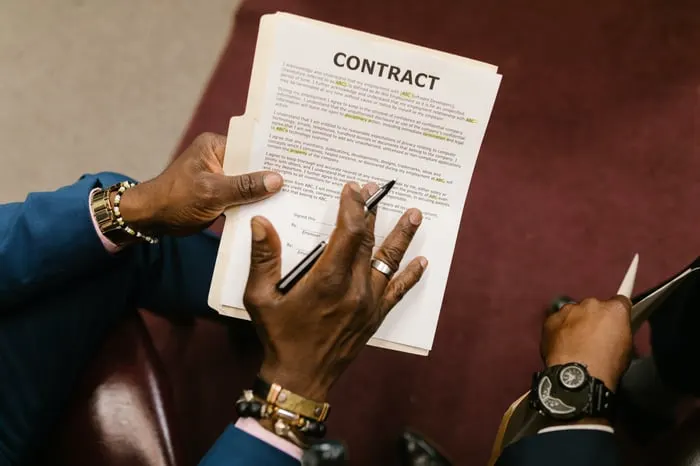You might be caught off guard when your renter requests an early termination of their lease agreement. After all, they’ve signed a contract that binds them to your rental property for a specific period. However, early termination of lease agreement is something that happens regularly. So, if your renter wants out, you should know how to deal with it. There are laws that protect you as well as your renter and it helps if you are aware of both sides.
If you’re confused about how to tackle an early termination of lease agreement, we can help you out. First, you must know when it is okay to let your renter off the hook. Then, you need to be aware of the different ways to deal with early termination.
Reasons renters have for early termination of lease agreement
1. Active military duty

If your renters are asked to show up for active military duty, they can terminate their lease agreement early according to the War and National Service Members Civil Relief Act.
The renter has to give a notice period of 30 days in such instances. After the notice period, they have no more obligation to pay rent.
2. Domestic violence
Landlord-renter rules are different for different states. In states like Nevada and Washington, survivors of domestic abuse, sexual assault, stalking, etc., can terminate their lease and move out. If your renter cites this as the cause of termination, check your state laws to see what your responsibilities are. Even if your state does not protect victims, you can make sure your renter is in a safer environment by letting them move with no penalty.
3. Divorce or illness
Unexpected events like, illness or divorce, can be financially draining for a renter. So, these can be considered as legit reasons for requests for early termination of renter lease agreements. As for job transfers, your renters don’t really have control over it.
You are not legally required to release your renters from a lease in these circumstances. However, offering your renter(s) an out makes a difficult situation a better for them.
Also, allowing early termination in these circumstances can save you more time and money than eviction.
4. Invasion of privacy
Know that even though you own the property, you do not have the right to enter it whenever you want. Around half of the states in the US, including California and New Jersey, have laws governing landlords' access to rental property. These laws define when and how landlords may legally enter the rented property. Often, you must provide your renters with a notice before you enter the property, unless there is an emergency. In many states, renters have the right to protect their privacy from their property owners and their agents. If you infringe on that right, the renter can take the route of early termination of lease agreement. However, renters must first issue you a formal written warning asking you not to come over uninvited.
5. Job loss

There may be a situation where your renter is unable to pay their rent due to reduced income, or job loss. In such a case, allowing them to cancel their lease agreement early may be a better option instead of an eviction. Early termination of lease agreement is far less time-consuming, and expensive than pursuing an eviction.
You can consider charging an early termination fee to make up for any income lost due to the early lease termination. Property owners usually charge two months’ worth of rent as a termination fee.
6. Uninhabitable rental property
Almost every state's laws guarantee renters the right to safe and livable housing, regardless of how much rent they pay. The term "livable housing" refers to a rental that meets basic needs such as:
Roof that keeps out rain and snow
Hot water
Heating facilities
Sturdy floors and walls that aren't in risk of collapsing
No serious environmental threats like lead or mold
Reasonable protection from the threat of criminal activities
Depending on the state, the renter can break the lease early if there is a violation of this right. In such a situation, the renter will have no obligation to pay any remaining rent.
How to mitigate early lease termination?
1. Go over the lease with your renter
Renters frequently fail to carefully read their contracts. So, it's a good idea to go through the contract with them. This way you can ensure that they've read the contract at least once and are aware of all the clauses and conditions that are in it.
Furthermore, the eviction procedure has significant expenses. So, reviewing your lease agreement with your renter before they move in is one of the best preventative measures available. This ensures that they are aware of the consequences of sending an early lease termination notice.
2. Start looking for a new renter
It is your responsibility as a property owner or manager to seek a new renter after your current sends you an early lease termination letter. Remember that new renter should be subjected to the same comprehensive screening as any other renter. You may have to go through the same steps as you would at the beginning of the renting season, such as marketing the rental, showing the apartment to prospective renters, and so on.
You are not required to rent to the first person who expresses interest. You must still conduct your screening process to ensure that the applicant satisfies all of your requirements.
3. Write a lease clause

Include an early termination of lease clause in your leasing agreement from the start. In the termination clause, make sure to include:
Minimum notice period
Early termination fees
Written notice requirements
4. Ensure you get a written notice of termination
Nothing is official unless it is written down. Make sure your renter writes down and signs a written notice to exit the lease. Keep it with your rental documents. Also, ensure that you have received the required payments (termination fees, unpaid rent, other charges, etc.) before they leave.
5. Offer a buy-out

As a property owner, you can give your current renter the option of a non-refundable fee called a "buy-out." As already stated in this guide, an early termination charge is usually equal to two months' rent. Thus, it is good for your renter if they have more than two months remaining on the lease.
You may find a new renter in less than two months. In such a situation, you don’t have to refund the vacating renter a prorated fee for the overlapping time. At the same time, if the renter search takes more than two months, you are not entitled to extra compensation.
6. Don’t use the security deposit for rent
It is not advisable to use the security deposit as rent after the early termination of lease agreement. You collected the security deposit in order to repair damages to the unit that were not caused by normal wear and tear during the renter's occupancy. If you put this money toward rent, you will no longer be able to pay for the repairs typically required when a renter moves out. Instead, conduct your routine property check to determine whether you need to use any security deposit funds for repairs or cleaning.
Should you let your renter break the lease early?
There is no definite answer to this question. It is important to have a respectful relationship with your renter and to maintain a good reputation. You can't force them to stay on your property. But, you can remind them of their lease duties. After you receive an early lease termination letter, you can also continue to hold them financially responsible until the unit is filled. A proper lease will ensure that you don’t incur losses when your renters break the lease early. Also, try to eliminate the possibility of a lawsuit (initiated by either you or the renter) as much as possible. Proper communication with your renter is the key to this.
Remember, if you allow one renter to terminate their lease but not another, you risk being accused of discrimination. It is better to establish a policy and apply it to all renters.
If you’re receiving coverage from TheGuarantors, we’ll step in and help both the renter and landlord. If there’s no agreement after an early lease termination, we pay the landlord and then work with the renter to figure out the remaining amount. Landlords get their owed amount in a timely manner and renters have more time to pay their share too! It’s a win-win situation.
The lease guarantee is basically an insurance policy: if a renter defaults on their lease, the lease guarantee covers landlords for the missed rent. Landlords lease with confidence and renters get the apartments of their dreams.
Want to learn more? Check out TheGuarantors for more lease conversions and a hassle-free move-in for your renters.
All information and content is for general informational purposes only. The information provided here is not legal advice. Readers should contact their attorney to obtain advice with respect to any particular legal matter. No reader, user, or browser of this site should act or refrain from acting on the basis of information on this site without first seeking legal advice from counsel in the relevant jurisdiction.



